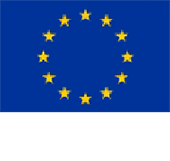SMART-Plant is joining the “European Water Tech Week Leeuwarden 2018” and will participate to a symposium on September 26th dedicated to “Recovered cellulose: from used toilet paper to resource for the biobased economy”.
Innovation, technology and policy leaders from companies, universities and governments get together during several inspiring events focused on the question how multidisciplinary cooperation can help to solve societal challenges around water. Issues like water scarcity, water pollution and water and health will be on the agenda, just like the water sector’s contribution to the circular economy.
Resource Recovery – Recovered cellulose: from used toilet paper to resource for the biobased economy
Recovery and reuse of raw materials such as cellulose from sewage has been on the agenda of water authorities, technology companies and end-users for many years. Should we reuse resources from sewage? Are we critical enough in the considerations? If we indeed want to recover resources from sewage, it’s time to change gears and speed up the process.
16.00 Opening and welcome by Coos Wessels, CTO CirTec
16.10 Applicability of cellulose in a circular economy, Prof. Dr. Bruce Jefferson
16.30 Critical comments on raw materials from sewage, to be confirmed
16.50 House of Commons debate, moderated by Prof. Dr. Bruce Jefferson
For this workshop we chose to use this form of debate to elicit a discussion in which all arguments about a predetermined statement will be discussed.
In the room, two rows of chairs are placed opposite each other, in between which the moderator/chairman can move freely. One side is in favour and the opposite side is against a predetermined statement. Who wants to contribute to the discussion has to stand up. Speaking is only allowed when the moderator gives you the floor. Each statement will have a short introduction by the moderator, followed by a discussion of max. 15 minutes.
In this workshop participants are encouraged to openly discuss different points of view. The aim is to create mutual understanding and get all barriers and arguments in the open. The format is as the House of Commons. The statements that will be discussed will be distributed the start of the debate and participants will randomly be asked to argue in favour or against a certain statement. Everyone should therefore be preparing himself or herself as a supporter or as an opponent of the statement. The fact that it doesn’t have to be the participant’s own opinion makes that participants can speak freely and get to think from a different angle.
17.35 Feedback on the session




